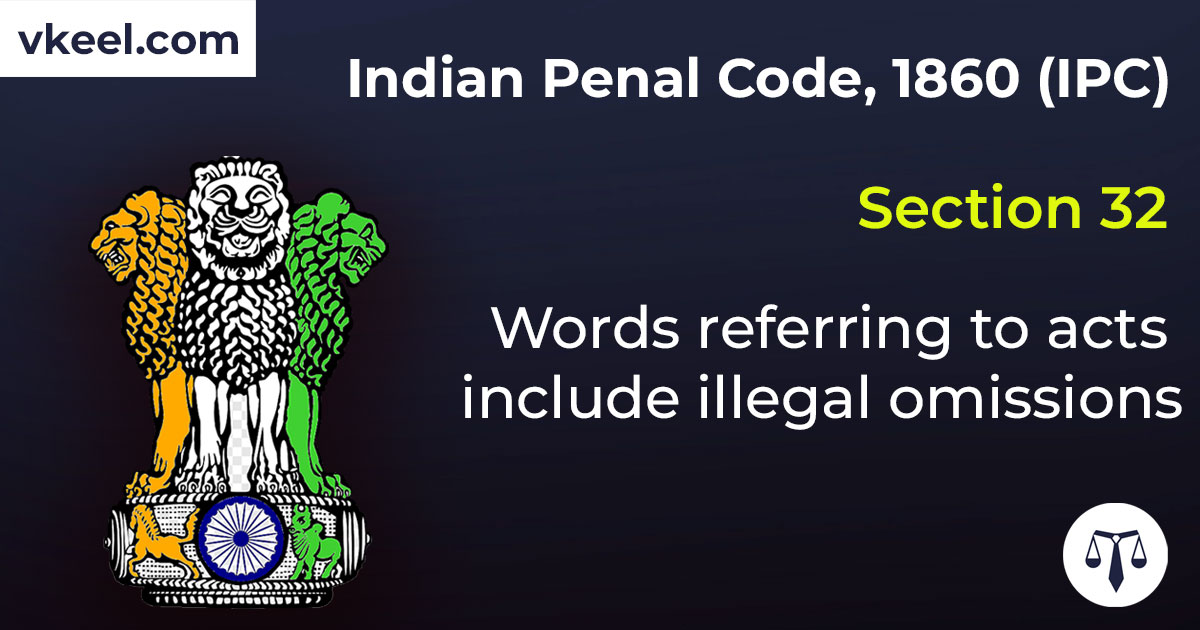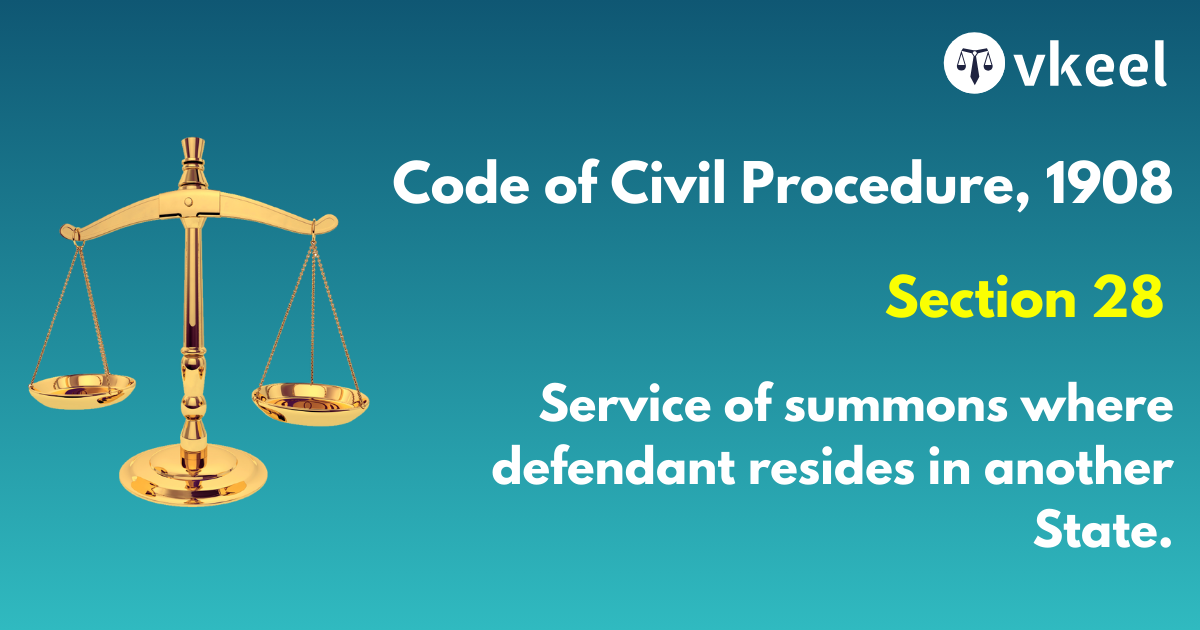Section 32 Indian Penal Code 1860 (IPC) – Words referring to acts include illegal omissions
By Vkeel Team
Table of Contents
Description
“Section 32 Indian Penal Code 1860 (IPC)”
In every part of this Code, except where a contrary intention appears from the context, words which refer to acts done extend also to illegal omissions.
Introduction
Section 32 of the Indian Penal Code (IPC) is an important provision that provides for the interpretation of language used in the statute. The section states that words used in the IPC to describe certain acts or offences should be interpreted to include illegal omissions as well. This interpretation ensures that the law is able to address not only positive acts that are prohibited by law but also failures to act where such failures are themselves prohibited by law.
Interpretation of the language
The interpretation of the language used in the IPC is a crucial aspect of criminal law. It helps to determine the scope and applicability of the provisions of the IPC. In this context, Section 32 of the IPC provides an important guideline for the interpretation of language used in the statute.
The section states that words used in the IPC to describe certain acts or offences should be interpreted to include illegal omissions as well. This means that if a particular provision of the IPC describes an act that is prohibited by law, the same provision should also be read to prohibit an omission or failure to perform that act, if such omission or failure is itself prohibited by law.
For example, the offence of causing hurt is defined under Section 319 of the IPC. The section states that whoever causes hurt to any person shall be punished with imprisonment for a term that may extend to one year, or with a fine, or with both. However, Section 32 of the IPC clarifies that the offence of causing hurt also includes the omission or failure to provide medical assistance to a person who has suffered hurt, if such omission or failure is itself prohibited by law.
Thus, if a person causes hurt to someone and fails to provide them with necessary medical aid, they could be held liable for the offence under Section 319 of the IPC. This interpretation ensures that the law is able to address not only positive acts that are prohibited by law but also failures to act where such failures are themselves prohibited by law.
Other examples of provisions in the IPC that are interpreted to include illegal omissions
There are several other provisions in the IPC that are interpreted to include illegal omissions. Let us consider a few examples:
- Causing death by negligence (Section 304A of the IPC): The section specifies that if a person causes the death of another by a negligent act or omission, they can be held liable for the offence. This means that even if a person fails to perform an act that is required by law and such failure leads to the death of another person, they could be held liable under Section 304A of the IPC.
- Causing the disappearance of evidence of an offence (Section 187 of the IPC): The section makes it an offence to cause the disappearance of any evidence that could be used to prove the commission of an offence. However, Section 32 of the IPC clarifies that the offence of causing the disappearance of evidence also includes the failure to produce evidence that is required to be produced by law. Thus, if a person is required by law to produce certain evidence in a criminal case and fails to do so, they could be held liable under Section 187 of the IPC.
- Offences relating to marriage (Chapter XX of the IPC): The provisions of Chapter XX of the IPC deal with offences relating to marriage, such as cruelty by husband or his relatives (Section 498A) and dowry death (Section 304B). These provisions are interpreted to include illegal omissions as well. For instance, the offence of dowry death is defined as the death of a woman caused by any burns or bodily injury or occurs otherwise than under normal circumstances within seven years of her marriage, and where it is shown that soon before her death, she was subjected to cruelty or harassment by her husband or his relatives in connection with any demand for dowry. This provision is interpreted to include the omission or failure to provide medical assistance to the woman in case of injuries or burns caused by the husband or his relatives.
Importance of Section 32 of the IPC
Section 32 of the IPC is a crucial provision that ensures that the law is able to address not only positive acts that are prohibited by law but also failures to act where such failures are themselves prohibited by law. This interpretation helps to fill the gaps in the law and ensures that offenders are held accountable for their actions, whether it be an act of commission or omission.
Moreover, the interpretation provided under Section 32 of the IPC helps to ensure that the law is not circumvented by offenders who seek to avoid liability by simply not performing an act that is required by law. By interpreting the language of the IPC to include illegal omissions, the law is able to hold offenders accountable for their failures to act where such failures are themselves prohibited by law.
Conclusion
Section 32 of the IPC is a crucial provision that provides for the interpretation of language used in the statute. It ensures that words used in the IPC to describe certain acts or offences are interpreted to include illegal omissions as well. This interpretation helps to fill the gaps in the law and ensures that offenders are held accountable for their actions, whether it be an act of commission or omission. The provision is important for the effective enforcement of criminal law and helps to ensure that the law is not circumvented by offenders who seek to avoid liability by simply not performing an act that is required by law.
Desctiption Source: indiacode
Disclaimer:
The information provided in the article is for general informational purposes only, and is not intended to constitute legal advice or to be relied upon as a substitute for legal advice. Furthermore, any information contained in the article is not guaranteed to be current, complete or accurate. If you require legal advice or representation, you should contact an attorney or law firm directly. We are not responsible for any damages resulting from any reliance on the content of this website.












